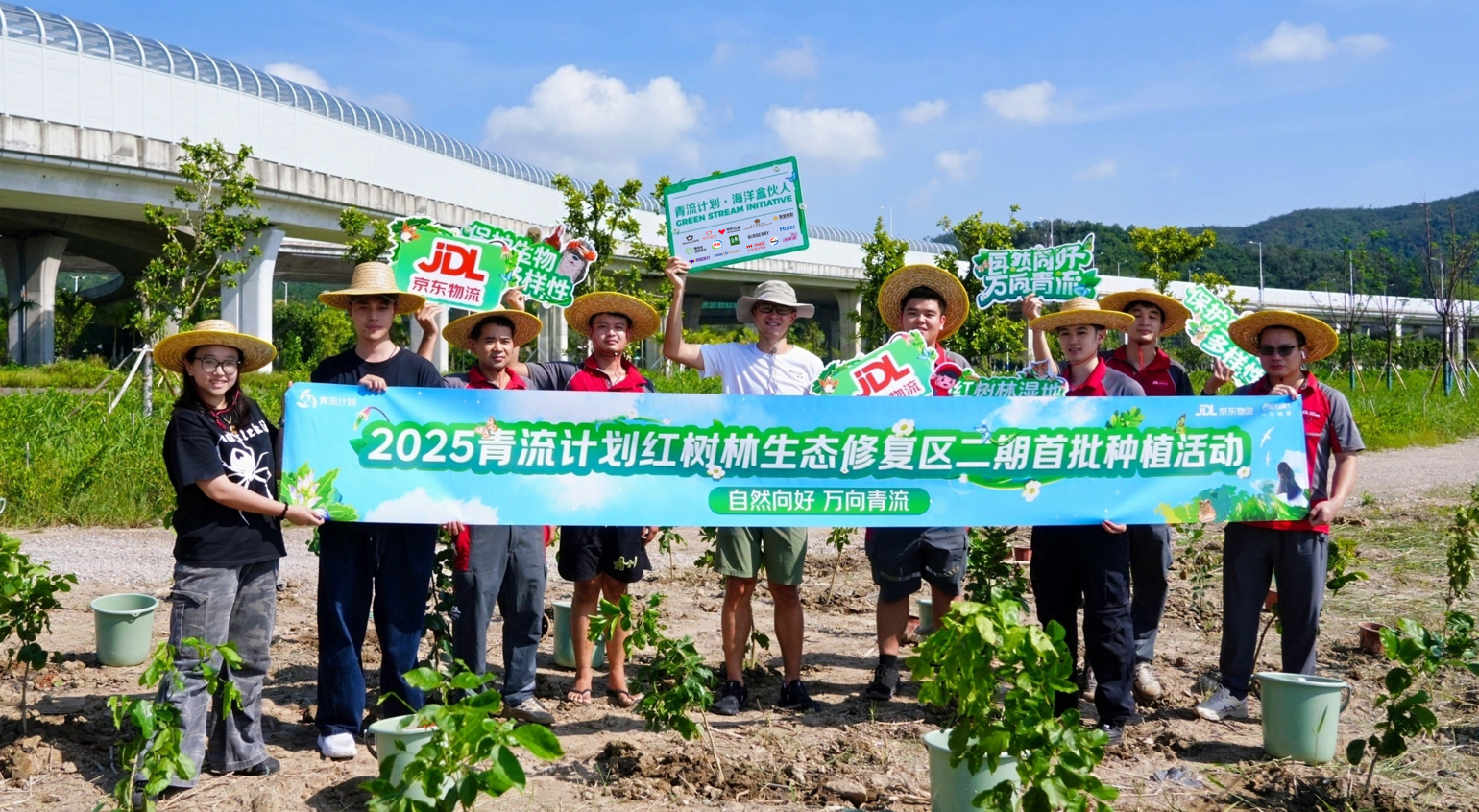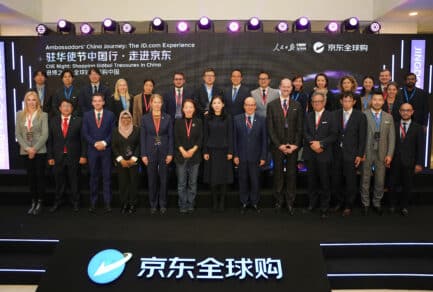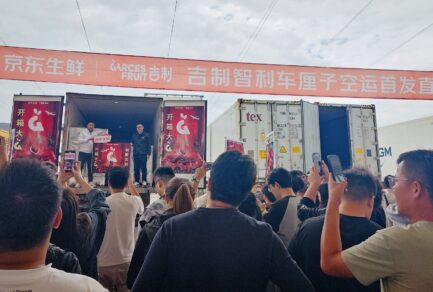Aug 13, 2020|
JD’s Omnichannel Fulfillment Program Wins National Award
by Rachel Liu
On August 12th, JD’s Omnichannel Fulfillment program won the “2020 Best Practice of Retail Digitalization in China” award during the 2020 China International Retail Innovation Summit held at the Shanghai International Convention Center.
The Omnichannel Fulfillment program was launched in 2019 based on JD’s inventory integration project with Walmart. It integrates multiple types of offline channels, including supermarkets, convenience stores and brands’ offline stores, enabling them to deliver orders that originate from JD directly. This improves the efficiency of the supply chain, shortens delivery time and increases the order for offline stores. The delivery time varies from 30 minutes to next-day, but customers can receive the orders in as few as 15 minutes.
Now the project covers over 200 cities, of which over 160 cities can achieve 1-hour delivery. This April, JD worked with Dada Group (JD’s joint venture for local on-demand retail and delivery) to launch around 100,000 stores from JDDJ (JD Daojia, Dada’s local on-demand retail platform) on JD.com, and provide customers with one-hour delivery for daily necessities. Supermarket chains such as Walmart, Better Life and Yonghui, and vertical offline stores such as maternal & baby stores, pet stores, grocery stores have joined the program. Brand partners include Unilever, Coca-Cola, Nongfu Spring, P&G, and more.
After over one year in operation, the program welcomes several updates. The first is the development of digital products. The program integrates consumption data in cities and stores, both online and offline, and share the insights with brands to help them improve their understanding of customers and interact with customers more precisely. Brands can also develop new products based on the data insights.
What’s more, the data can help JD analyze the consumption habits in different cities, and use LBS (location based services) to recommend products that are popular in the area to customers. A good example is Huaguan Supermarket, a chain supermarket brand in Beijing. To improve the sales of the supermarket online, JD analyzed the characteristics of the customers around the supermarket and launched targeted marketing campaigns, including sending coupons and text messages to potential customers. Sales of the Huaguan supermarkets climbed to top 10 among all supermarkets that joined the Omnichannel Fulfillment program.
“Now we are able to do marketing programs using LBS to target customers in certain areas where the offline stores are located. Combining online and offline, we do see that the ROI is higher than just doing online marketing,” said Changming Li, head of Omnichannel Fulfillment Program, JD FMCG Omnichannel.
With offline stores getting more orders, the Omnichannel Fulfillment team can provide smart replenishment tools to help stores better manage their inventories to optimize the efficiency of the operations of offline stores.
During the 2020 China International Retail Innovation Summit, Changming Li shared his insights on China’s local services market. Unlike food-delivery, which focuses on daily needs, traditional ecommerce, which is based on monthly needs, the local services business targets weekly needs. JD’s Omnichannel Fulfillment program is focused on the optimization of supply chain, which is a strong point for the e-commerce giant. The cooperation with Dada also expanded the ecosystem.
This year, the key for the business is to build the infrastructure, including a more customer-friendly shopping route, and a smoother fulfillment process from order distribution to last-mile delivery. In the future, the Omnichannel Fulfillment program will be expanded to categories including electronics, fashion, auto products and books.






 JD’s Asia No.1 in Ningxia will Start Operations Next March
JD’s Asia No.1 in Ningxia will Start Operations Next March



